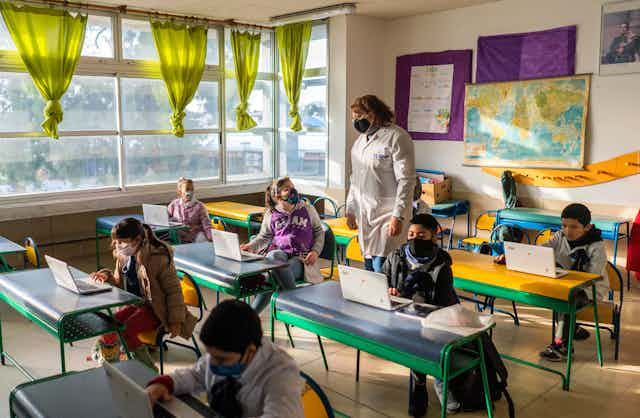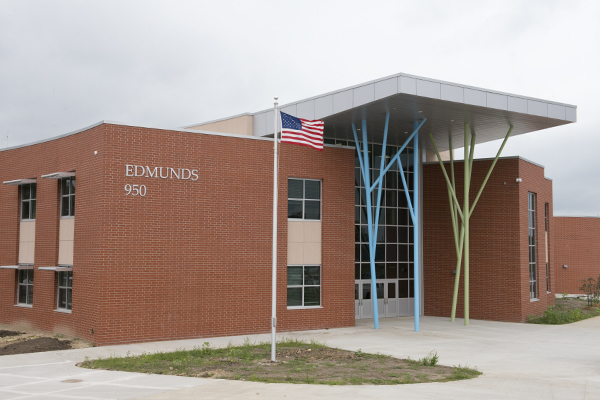Understanding the Relevance of Institutions in Youngster Advancement and Area Growth
Institutions' interaction with local neighborhoods via service-learning campaigns reinforces the bond between households and academic organizations. This symbiotic connection underscores the importance of schools in supporting energetic citizenship and long-lasting discovering practices.
Academic Accomplishment
Academic success functions as a foundation of kid growth, supplying the foundation upon which future discovering and success are constructed. Institutions play a critical role in promoting this academic growth, offering structured environments where youngsters can obtain vital understanding and cognitive skills. Standard curricula ensure that pupils gain efficiency in core subjects such as maths, scientific research, and language arts, which are vital for both higher education and professional possibilities.
Along with presenting basic academic abilities, institutions also cultivate important thinking, analytical capacities, and intellectual inquisitiveness. These cognitive proficiencies are essential for navigating complicated real-world scenarios and adapting to the ever-evolving needs of the modern-day office. Teachers, as facilitators of discovering, utilize varied instructional techniques to accommodate varied understanding styles, thus optimizing individual pupil possibility.
Additionally, academic success is carefully linked to self-esteem and motivation. Youngsters who experience academic accomplishments are more likely to create a positive self-concept and a long-lasting interest for learning. Schools additionally supply various resources, such as collections and modern technology, which better enhance the educational experience and prepare trainees for a technically innovative culture.
Social Ability Development
Beyond academic achievement, the function of institutions in social ability advancement is indispensable. Schools work as a primary venue for children to discover and practice vital social abilities such as cooperation, communication, and problem resolution. In the organized environment of a class, pupils connect with peers, educators, and various other institution personnel, using various chances to develop these crucial abilities.
Effective social skill advancement in institutions is assisted in with group tasks, joint jobs, and extracurricular programs. These interactions help pupils understand social standards, develop compassion, and cultivate a feeling of area. For example, team projects instruct trainees exactly how to interact towards a common goal, pay attention to different point of views, and browse disagreements constructively.

The farming of social abilities during institution years lays a foundation for future individual and specialist relationships. Save Temecula Schools. As students grow, the ability to successfully connect and collaborate comes to be increasingly important, highlighting the school's important duty in all natural child advancement
Exposure to Diversity
Exposure to diversity in schools is basic to cultivating a comprehensive attitude and expanding students' perspectives. Schools act as a microcosm of the wider society, and running into varied societies, languages, and socioeconomic backgrounds within this atmosphere outfits pupils with essential skills for browsing a significantly globalized world. This exposure encourages empathy, lowers bias, and advertises shared respect among peers.
Study suggests that students that engage with peers from different histories exhibit far better analytical skills and imagination. This understanding of diversity prepares pupils for future work environments that worth multicultural capability - Save Temecula Schools.

Community Interaction
The benefits of varied class prolong past the college wall surfaces, cultivating a solid sense of community engagement among students. By communicating with peers from different cultural, socioeconomic, and ethnic backgrounds, trainees get a wider point of view and an appreciation for diversity. This exposure encourages them to end up being active residents who want to contribute positively to their communities.
Schools that emphasize area interaction typically integrate service-learning jobs, which allow trainees to attend to real-world issues while applying academic abilities. These projects not just boost pupils' understanding of their coursework however likewise infuse a feeling of obligation and empathy. Furthermore, partnerships between schools and local companies offer pupils with chances to take part in community occasions, additionally strengthening their function as proactive area participants.
Additionally, adult and area involvement in schools enhances the bond between universities and the neighborhoods they offer. When institutions open their doors to community occasions, workshops, and volunteer opportunities, they develop a collaborative setting that benefits all stakeholders. This mutual assistance system ensures that pupils receive alternative development, preparing them to come to be all-around people that add and value to their neighborhoods. With these initiatives, institutions play a pivotal role in supporting neighborhood involvement and fostering societal growth.
Lifelong Knowing Routines
Creating long-lasting learning practices is crucial for a child's continuous development and versatility in an ever-changing globe. Colleges play a pivotal duty in instilling these routines by developing an environment that fosters inquisitiveness, critical thinking, and a love for knowledge. Through extracurricular activities and diverse curricula, educators see post encourage trainees to check out different subjects, assess information critically, and use their finding out to real-world scenarios.

Furthermore, institutions supply an organized environment where youngsters can develop self-discipline and time management skills, both of which are critical for constant discovering. By stressing the significance of establishing objectives, assessing development, and adjusting strategies, schools prepare trainees to navigate the complexities of adult life, guaranteeing they continue to be lifelong learners and contributors to society.
Final Thought
To conclude, colleges are vital in cultivating youngster growth and community growth by giving atmospheres helpful to scholastic achievement, social ability development, and direct exposure to variety. With collective jobs and communications, institutions boost important reasoning, empathy, and communication skills. Neighborhood interaction initiatives even more enhance the bond between regional communities and educational institutions. Inevitably, colleges grow long-lasting knowing practices, gearing up individuals with the necessary expertise and abilities to add positively to society.
In the organized atmosphere of a class, trainees communicate with peers, educators, and other college staff, using various chances to create these crucial capacities.
In essence, exposure to variety within institutions not just enriches private pupils but likewise reinforces the social material of the area as a whole.
The benefits of diverse class expand beyond the school walls, promoting a solid sense of community interaction amongst students.Institutions that stress community engagement commonly include service-learning tasks, which allow students to attend to real-world issues while using scholastic skills. Partnerships between colleges and local organizations supply pupils with possibilities to take part in area occasions, further solidifying their role as aggressive neighborhood members.